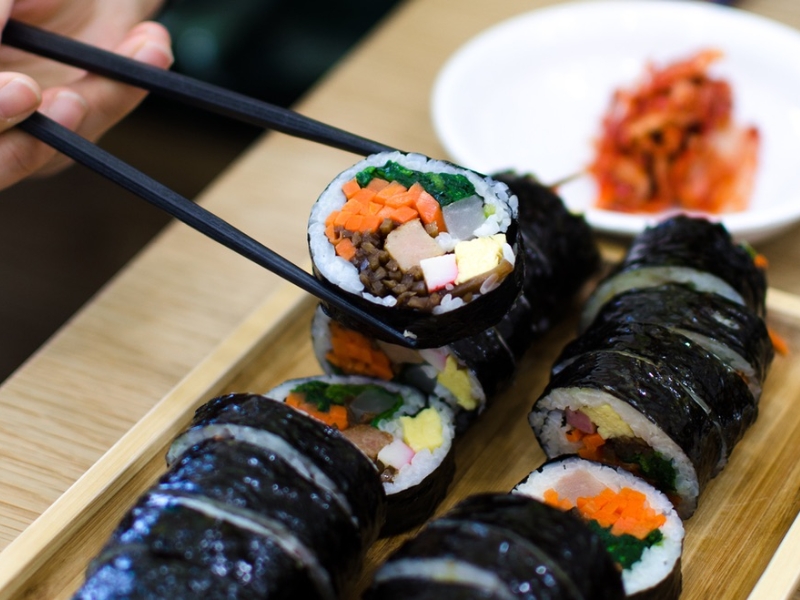11 tips for what to eat when eating out
While preparing your food yourself from a quality, wholefood ingredients is the best way to maintain a healthy diet, sometimes eating out is either the only option, or a great way to socialise with family and friends! So how do you ensure that you’re eating healthy when eating out?
1) Plan ahead by reading the menu or choosing restaurants with healthy options
These days, the menu for most restaurants are available online, so you can suss them out before stepping foot in the restaurant! Choose restaurants and cafe’s that market themselves using buzz words like those listed below:
- Organic
- Seasonal
- Grass-fed
- Free-range
- Farm-to-table
- Local produce
- Whole food
- Home-made
- Vegetarian options
- Vegan options
- Paleo options
- Keto options
- Low carb options
2) Have a snack before you go
You may have heard the advice, “never go grocery shopping when you’re hungry.” This is because you end up buying more than you would normally! The same principle applies for eating out. Have a healthy, low GI snack before eating out (like a small handful of nuts or a hard-boiled egg). This will prevent you from over-eating or ordering more than you need. It also means that if there aren’t many healthy options, you can order something small and still feel satisfied!
3) Fill up on salads
High-fibre foods such as veggies help you feel fuller for longer and will prevent you from over-eating or ordering other unhealthy options! The trouble with salads when eating out, is that they’re often dressed with vegetable-oil based dressings that aren’t so good for you. Don’t be afraid to ask the waiter what the dressing is made out of. If they use a pre-made mix or vegetable oils, simply ask for a dash of lemon or vinegar, or opt for a dressing-free salad to avoid the pro-inflammatory vegetable oils.
4) Skip the soft drinks. Choose sparkling or mineral water.
Hopefully you know by now that sugary, soft drinks are not good for you. They’re either packed with sugar or sweeteners that play havoc with your metabolism and lead to weight gain. Opt for sparkling or mineral water when out, and ask for a dash of lemon or lime juice if possible to keep things interesting!
5) Choose low-sugar alcoholic drinks
When choosing an alcoholic beverage, opt for low-sugar options such as red wine or a dark beer. Alternatively, order light-coloured alcohols such as vodka, gin, tequila, rum and whisky with soda water and fresh lime. These have significantly less sugar. Avoid ordering cocktails as these are often super high in sugar! Just remember to limit your alcoholic beverages to 1 or 2 standard drinks, as alcohol is very high in calories and can quickly add up to a full meal’s worth of energy!
6) Be mindful of the portion sizes
Have a sneaky look around at other peoples plates before ordering. If the portion sizes are large, order one and share between two.
7) Customise your dish
Ensure that the restaurant or cafe you are attending offers options for various meals, such as gluten-free (GF), dairy-free (DF) or vegetarian (V). This should be obvious on the menu before you go to the restaurant. This means that they are flexible with their meals and will allow you to customise a dish to suit your unique needs, allergies and intolerences.
8) Order grilled, not fried (or crumbed)
If you’re ordering a chicken burger, opt for grilled rather than fried or crumbed chicken breast. This will limit your consumption of vegetable oils or gluten from the crumbed chicken. Speaking of burgers, order without the sauce because aoli’s and tomato sauces are laden with vegetable oils and sugars!
9) Swap fries for veggies or salad
If your meal combo comes with fries, ask to swap it with some veggies or a salad. Fries are deep-fried in pro-inflammatory vegetable oils that promote a whole host of chronic diseases.
10) Skip the breadbasket
Let the waiter know you don’t need bread to start, or simply avoid the bread basket at the beginning of the meal. Don’t fill up on white, refined carbohydrates and save your stomach space for healthy proteins and fibre!
11) Don’t be afraid to ask questions
I recently read some recommendations for eating out that stated that it’s okay to “be obnoxious” and state your needs. While I wouldn’t go this far, it’s important for you to know that it is totally okay for you to ask plenty of questions about what you’re going to be eating. You’re not being impolite, you’re simply prioritising your health!







